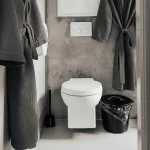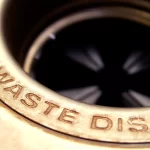Blocked toilets are a nightmare, and they tend to happen at the most inconvenient times. If your toilet gets blocked on a regular basis, your best bet is to get a plumber out to take a look and see if there’s a long-term problem that can be resolved. If it’s just a one-off, you can try and clear it yourself before reaching for the phone to call the emergency number for a licensed plumbing service. Here’s how to go about it in 9 easy steps:
Step 1: Flush Once Only
Ok, you’ve probably done this, or you wouldn’t know it’s blocked. The critical piece is don’t flush again, otherwise you’re likely to end up with a flooded bathroom. Wait until the water subsides before going any further, and if it doesn’t you’re going to have to scoop it out using a jug or some other receptacle. If necessary, line the floor around the toilet with newspaper to protect it.
Step 2: Add Dish Soap and Hot Water
This helps to lubricate the sides of the toilet and might help to dislodge whatever is blocking it. Pour a few squirts of dish soap into the toilet, followed by a bucket-full of hot tap water. Don’t use boiling water, because it could crack the toilet bowl and then you’ll need to replace the whole thing. Let the soap and water rest for a few minutes and see if anything happens. If the toilet is relatively empty at this point you can try flushing again, but be prepared to go back to scooping out if it doesn’t work.
Step 3: Use the Plunger
Insert your toilet plunger into the bowl and press down slowly, making sure the plunger is level and covers the exit pipe completely to create a vacuum. Pump it up and down to cause suction, without being so energetic that you cause the contents to spill over the side. Don’t push items such as wire clothes hangers into the toilet; any licensed plumbing service will tell you all you’re likely to achieve is to damage the bowl and pipe.
Step 4: Get a Snake
If you have the right equipment and know what you’re doing, you can try sending the snake down the pipe. If the blockage is caused by a child’s toy or something else hard, the snake may not be able to dislodge it but at least you’ll know it isn’t moving. Plumbing snakes are flexible and made for use, so they are unlikely to cause damage if used correctly. Snakes are useful for moving clogs made of organic matter, such as hair or toilet tissue, because these often need just a nudge to get them going down the pipe.
If none of these methods work, contact your nearest licensed plumbing service and get them to come out and do the deed for you. It might cost you a few dollars, but it beats the expense of cleaning up or installing a new toilet once it’s damaged by rough methods or abrasive chemicals.






